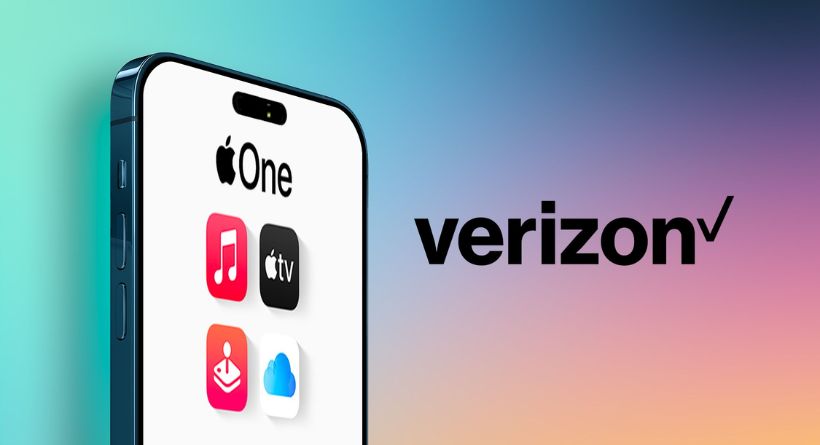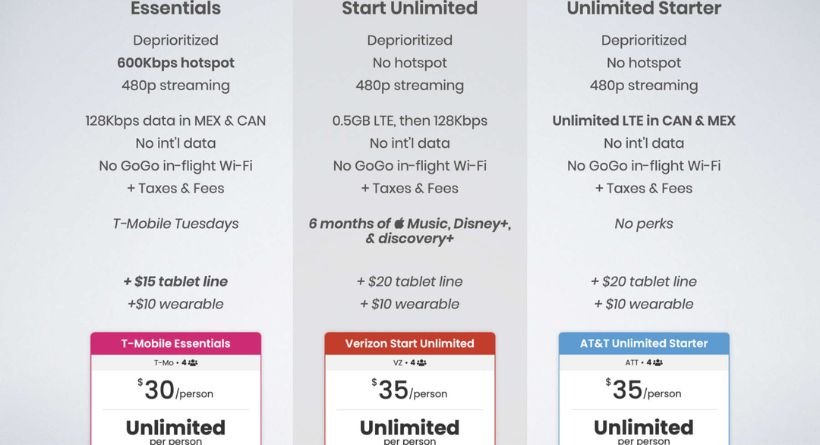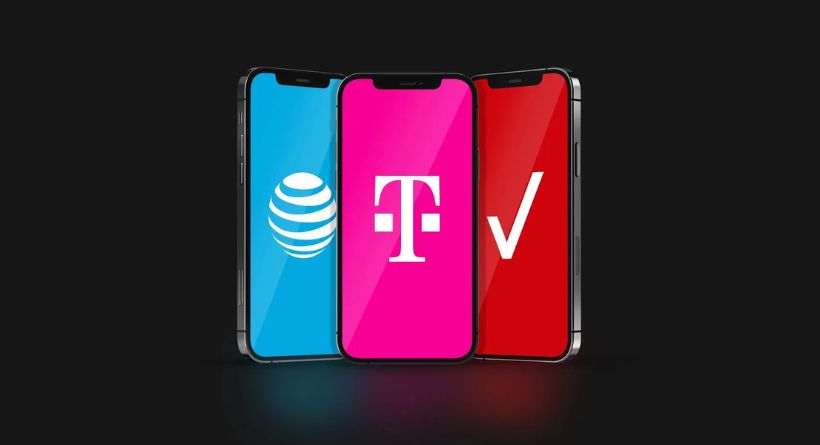When you consider upgrading to an iPhone 14, have you thought about switching carriers? The main US carriers are providing enticing incentives for new customers due to the intense market rivalry. In the sections below, we’ll compare Verizon vs AT&T side by side in terms of speed, real-world coverage maps, how to rapidly test Verizon for free using an iPhone eSIM, and more.
Verizon vs. AT&T plans and pricing
Winner: Verizon’s benefits and performance are somewhat superior, while AT&T’s top-tier plan provides you with the most data.
Let’s get right to the point: Verizon and AT&T have extremely comparable plans. Frequently, there is just a $5 price difference or a little bonus separating the two.
Look at the coverage and data sections further below, where the differences between the carriers are frequently more obvious if you’re having trouble making a decision.
Because neither carrier has many limited-data plans to choose from, we’ll concentrate on unlimited data options in this section. Go big or go home, then (or go get yourself a cheap limited-data plan from one of these other carriers). Let’s start now.
Verizon vs. AT&T family plans
Winner: Verizon’s greater coverage may still be preferred for some despite the amazing higher data limits, lower costs, and waived activation fees offered by AT&T.
There is nothing better than gathering the entire family to determine who is still responsible for paying their share of the phone bill. But honestly, if you group your children, siblings, and other family members under a family plan, you can save a tonne of money.
Family plan offers are available from AT&T and Verizon, and they both grow better as more lines are added. First, let’s examine Verizon.
Verizon vs. AT&T data
Verizon has faster 4G and 5G internet speeds, but AT&T can still complete the task.
You probably already know that no two phones have the same internet rates if you’ve ever tried to open the same YouTube video while sitting next to a buddy. If the phones are on separate networks, this is particularly true.
Which provider offers the quickest speeds, then?
Verizon has quicker broadband speeds than AT&T, according to our exclusive statistics from more than 100,000 mobile users (though both are slower than T-Mobile).
Of all, they are merely typical 4G LTE network speeds. Depending on your location, your strategy, and other elements, there will be some differences. No matter which network you’re on, your speeds will drop if you go over your data allotment, which is why we like AT&T’s greater data allowance.
Although AT&T’s average data speeds are less than Verizon’s, they are still more than sufficient for streaming movies, playing games, and navigating through social media.
AT&T vs Verizon — Phone selection
Phones that are carrier-exclusive are no longer as common. In many cases, the only variation between the lists of devices offered by the top US carriers is whether the phone uses GSM or CDMA. This regulation applies to AT&T and Verizon as well, but Big Red provides a wide selection of Motorola phones—including the folding Razr—exclusively.
One of the key distinctions between AT&T and Verizon, as we have already discussed, is the distinction between GSM and CDMA. While AT&T controls the GSM camp, Big Red falls on the CDMA side. The newest technology, GSM, is more widely used than CDMA, which is fantastic if you frequently go overseas.
Which carrier is right for you?
The million-dollar issue in the AT&T vs. Verizon debate is: which one is best for you? It depends, is the succinct response. Choose Verizon if you have a reasonable budget and desire the greatest 4G LTE network. If you enjoy Motorola phones like the Razr, you could also turn to Big Red. Yet, AT&T is the best option if you want more freedom to transfer gadgets.
In the end, we can’t advise you which network to use, and perhaps neither is the best choice. If so, you might be interested in looking over a number of our other carrier tutorials for other options:
- Buyer’s Guide for Google Fi
- Buyer’s Guide for T-Mobile
- Buyer’s Guide for Boost Mobile
Verizon vs AT&T conclusion
When comparing Verizon vs AT&T, Verizon wins out in terms of coverage, performance, and cost.
Verizon pros:
- superior performance quality (recent J.D Power study)
- fantastic general coverage
- when 5G UWB is enabled, the fastest speeds
- than AT&T, faster average speeds
- new unlimited package starting at $30 per line
Now that you know how the major carriers compare, how to check the actual network coverage, and how to begin an easy eSIM trial, perhaps you have a comprehensive understanding of these topics (Verizon through Visible). Thanks for reading our Verizon vs. AT&T comparison article!



